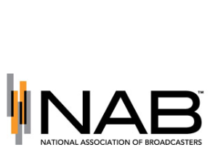
(By Ronald Robinson)
Dateline: Kinshasha, Zaire.
Event: The Rumble in the Jungle.
Combatants: World Heavyweight Champion George Foreman and Muhammed Ali
At the time, and well before George Foreman became an exceptionally affable pitch-man for cookware, he was the most feared man in the fight game. And rightfully so. He destroyed his opponents. When the announcement was made of a Foreman-Muhammad Ali bout, pundits were offering sympathy messages for the former Cassius Clay.
Foreman was known for the brutal effects of his punches. Like Sylvester Stallone’s Rocky Balboa, Foreman could beat the carcass of a cow into submission. How was Ali to defend himself against such onslaughts – never mind achieve a near impossible victory?
Enter: The Strategy.
Contrary to the professional opinions of some boxing aficionados, Foreman was, ultimately, human. He could throw those devastating punches, but only for so long. Ali’s strategy was to protect himself – for a long period of time. He would cover up and lean into the ropes and absorb all the punishment he could manage without being beaten down and out. Would this strategy allow Ali to avoid becoming another “canvas back”?
As Foreman eventually tired and became exhausted, Ali was in a much better position to counterattack… and prevail. Ali had the knowledge, skills, and self-discipline to stick with the strategy. In this case, sporting history was made, and as this event has since been raised to legendary status, the details of Ali’s capacities to prepare and execute get left out of the story.
Radio is demonstrating a form of rope-a-dope strategy. From all quarters, radio is being pummeled by competing media and by members of its own kind. Radio, despite bleatings to the contrary, is operating in a very defensive mode. Radio is doing more to protect itself than it is to better itself. By now, all the droll justifications continue to be trotted out as if distinctions between wheat and chaff were being correctly identified.
As a medium that is still enjoying an impressive reach, radio’s sales and marketing professionals continue to advance the benefits to advertisers for accessing the unique, influential properties that radio still enjoys. Not only is this information not revelatory, it has been the status quo for many decades. Indeed, “Radio Works!”
While radio sales professionals continue to develop methodologies for presenting the medium – as well as accumulating data that reinforces the impact of radio – these activities are based on the assumption (or understanding) that radio’s leadership have no intention to investigate the capacities of radio to become a much more powerful medium. So far as I know, the considerations of the potentials of the radio medium have either been discounted as useless, and possibly too expensive, to be undertaken. Or disregarded altogether.
So, radio moves around the peripherals of its squared circle and bounces off its ring ropes – protecting itself from incoming assaults. Unlike Ali, however, radio has no strategy to go on the offensive. It can’t do so, because, unlike Ali, radio has not acquired the knowledge, the skills, nor the self-discipline to mount any offensive whatsoever. It should be recognized, meanwhile, that radio does have the stamina to stay standing without being driven to the floor – and counted out. (Slight praise, nevertheless.)
That radio refuses to address its on-air presentations and the quality of its local ad production constitutes a glaring indictment of the ownership and management group. There are no valid or compelling excuses being provided from this group, other than the obligatory “Gotta cut some more budgets here. Times are tough!” routine.
Over the years I have been advancing these premises, I have not had one cogent challenge on the issues. Not one. It would be reasonable, I presume, to expect at least a few radio apologists to get on their hind legs in enthusiastic and righteous protest. Anyone who is willing to make such protestations, however, is also obliged, in my view, to articulate specific alternatives. So far, not a peep.
When the very first groups we are supposedly serving – advertisers and audiences – are the last ones to be addressed, the indications become that the rope-a-dope strategy, while it does extend radio’s participation in the game, is still all that is keeping the industry from becoming the “former” champion.
Ronald T. Robinson has been involved in Canadian radio since the ’60s as a performer, writer, and coach, and has trained and certified as a personal counselor. Email Ron at [email protected]






